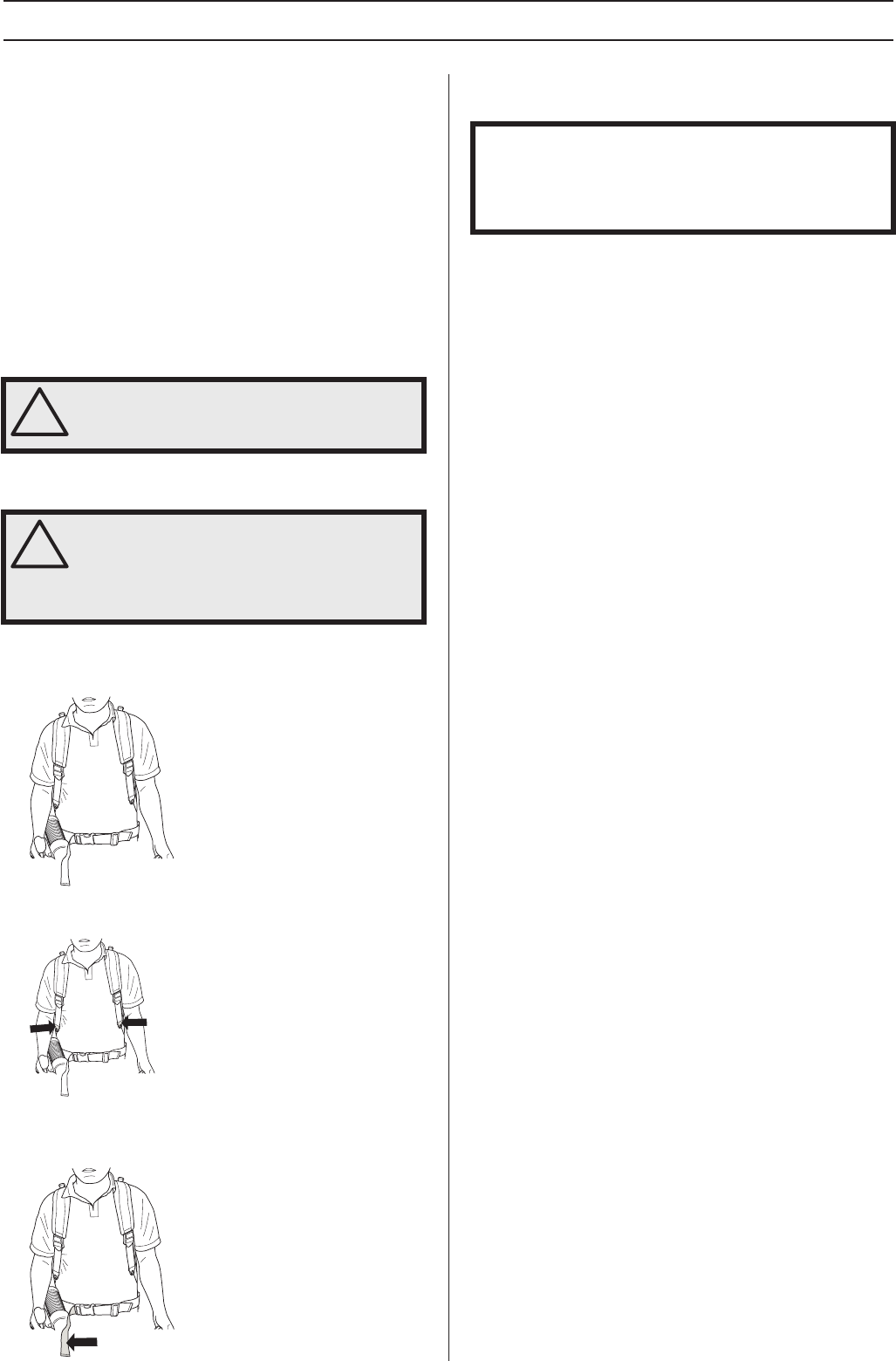
8 – English
SAFETY INSTRUCTIONS
Transport and storage
• Store and transport the machine and fuel so that there is
no risk of any leakage or fumes coming into contact with
sparks or naked flames, for example, from electrical
machinery, electric motors, electrical relays/switches or
boilers.
• When storing and transporting fuel always use approved
containers intended for this purpose.
• When storing the machine for long periods the fuel tank
must be emptied. Contact your local gas station to find out
where to dispose of excess fuel.
• Ensure the machine is cleaned and that a complete
service is carried out before long-term storage.
Adjusting the harness
A correctly adjusted harness and machine significantly
facilitates the work. Adjust the harness to give the best
working position.
Tighten the side straps so that the pressure is evenly
distributed across the shoulders.
Place the hip strap over the hip and not too far down on the
stomach. Tighten the hip strap so that you feel the weight of
the blower resting on your hip.
General working instructions
Show consideration to persons in your surroundings by
avoiding using the machine at unsuitable times, such as late
in the evening or early in the morning. Read through and
follow the simple directions so that you disturb your
surroundings as little as possible.
• Use the blower with the lowest possible throttle. It is
seldom necessary to use full throttle, and many work
procedures can be done at half throttle. A lower throttle
means less noise and less dust, and it is also easier to
keep control over the rubbish collected together/moved.
• Use a rake or a brush to release rubbish stuck to the
ground.
• Hold the opening of the blower as close to the ground as
possible.
• Observe your surroundings. Direct the blower away from
people, animals, play areas, and cars etc.
• Clean up afterwards. Make sure that you have not blown
rubbish into someone’s garden.
!
WARNING! Take care when handling fuel.
Bear in mind the risk of fire, explosion and
inhaling fumes.
!
WARNING! The harness must always be
worn when working with the machine.
Failure to do so means you will be unable to
manoeuvre safely and this can result in
injury to yourself or others.
IMPORTANT! This section considers basic safety rules
when working with blowers. If you encounter a situation
where you are uncertain how to proceed you should ask an
expert. Contact your dealer or your service workshop. Avoid
all usage which you consider to be beyond your capability.


















